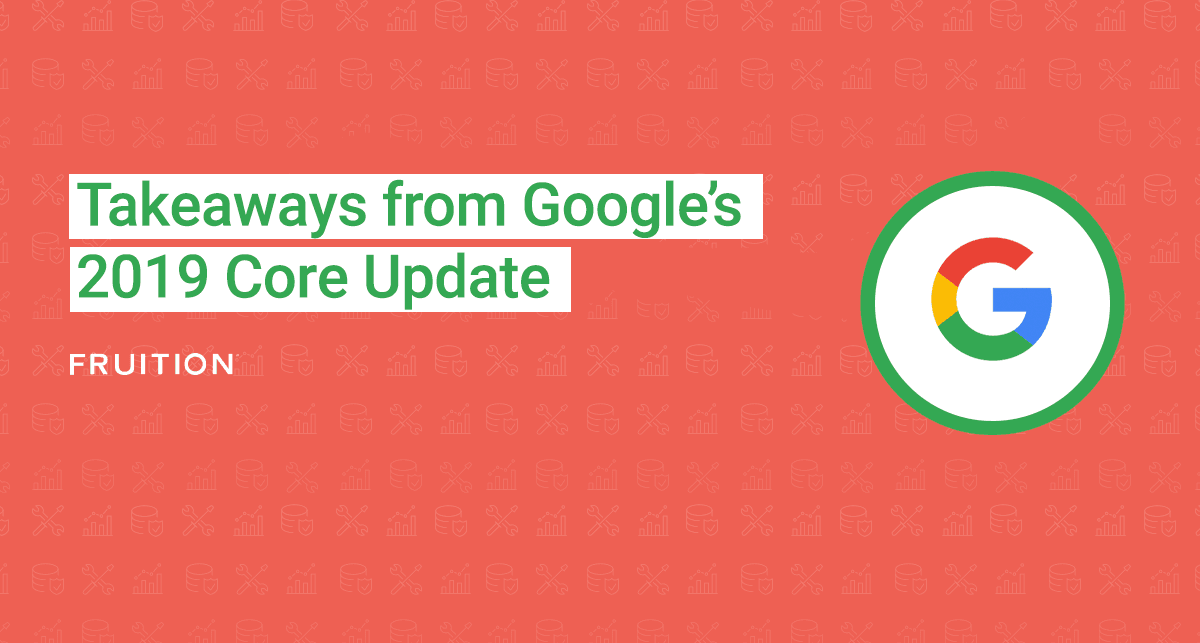The Impact and Recovery Strategies for Google's 2019 Core Update

The Impact and Recovery Strategies for Google’s 2019 Core Update
Takeaways from Google’s 2019 Core Update
Website owners who are interested in using search engine optimization techniques to improve their ranking in Google’s search results are always attentive towards shifts which may indicate a change in Google’s ranking algorithms. On March 12, 2019, keen observers began noticing signs of ranking and traffic changes that pointed to a significant update. While Google does not announce every change made to their algorithm, on this occasion they made an announcement confirming that an update had indeed taken place. The speculation therefore turned to the specifics of the update: what is was, who appeared to be affected, and how those hurt by the impact could recover from it.
What it Was
When the update first came out, people in the SEO community looking for a quick shorthand way to refer to it gave it the nickname “the Florida 2 Update”. This was because the update occurred shortly after a PubCon event in Florida, and the original Florida Update also occurred after a PubCon event in Florida. However, this somewhat circuitous naming scheme was frowned on by Google, who worried that it might confuse people into believing that this update was in some way related to the original Florida update. Since there is no actual relation between the nature of the updates, they recommended calling it “the March 2019 Core Update” for the sake of clarity. Google made several other statements about the update intended to answer SEO questions and dispel potential confusion. What we do know, according to them is that: • This update was a broad core algorithm update, a type of update which is done several times per year. • It is a general improvement to their algorithm designed to improve the experience of searchers and ensure that they receive the most useful results in response to their queries. • Google also stated that this update is not connected to their Penguin algorithm, which is directed at penalizing sites which violate Google’s webmaster guidelines; Penguin was fully integrated into Google’s core algorithm in 2016 and is no long receiving specific announced updates. • They also denied that the update had any connection to neural matching, a method used for search engines to better connect words to concepts. • Finally, they specified that, contrary to some hyperbolic assertions, this was in no way the biggest update that Google had ever done.
Who Appeared to be Affected?
Because a previous broad core algorithm from Google, nicknamed the Medic Update, specifically targeted health and medical sites, many people initially assumed that this update did as well. However, Google issued a statement that there was no specific target for this update. While some in the community jumped to the conclusion that this update might also be health targeted because many sites impacted by the Medic Update were also impacted by this one, that is in fact normal for all core updates: the owners of sites which have been negatively impacted by an algorithm update make changes to try and recover their lost traffic, and so their sites get re-evaluated when the algorithm next updates.
How to Recover
Whenever a Google update occurs, those people whose sites have been negatively impacted by the changes immediately begin asking what they can do to recover their lost ranking and traffic. In the cases of updates which specifically target and penalize sites for a specific practice, there can be a simple and specific answer. Core algorithm updates, however, are more complicated. In response to questions about how sites impacted by this latest update can recover, Google directed questioners to the following previously issued statement regarding core updates: “As with any update, some sites may note drops or gains. There’s nothing wrong with pages that may now perform less well. Instead, it’s that changes to our systems are benefiting pages that were previously under-rewarded. There’s no ‘fix’ for pages that may perform less well other than to remain focused on building great content. Over time, it may be that your content may rise relative to other pages.” In other words, there is no quick fix that can be immediately implemented for a core update, because changes in ranking are not due to penalties; rather, they are a result of other sites rising in the rankings because of their quality content. The only way to “recover” is to improve your own site in order to surpass your competitors in quality, which is a gradual process that requires building content over time.
Conclusion
The landscape of SEO is ever-evolving. Google is constantly changing their search engine’s algorithm in order to deliver searchers the best and most relevant results to their queries, and site owners are constantly changing their SEO strategies to try and benefit from the alterations to the algorithm. While this can be effective in response to algorithm changes which target certain specific categories of site or practice, Google’s broad core algorithm updates are more general in nature and do not lend themselves to such specific solutions. Ultimately, the best way to improve your site’s rankings and traffic are not to jump on each new fad or passing trend, but to focus on what Google has always said it truly values: creating quality, useful content and providing a good user experience which creates engagement. References “Google released a broad core search algorithm on March 12” by Barry Schwartz. Search Engine Land. March 13, 2019. https://searchengineland.com/google-has-released-a-broad-core-search-algorithm-update-this-week-313905 “Google Search Ranking Algorithm Update On March 12 (Florida 2)” by Barry Schwartz. Search Engine Roundtable. March 13, 2019. https://www.seroundtable.com/march-12-13-google-search-ranking-algorithm-update-27249.html “When Naming The Google 3/12 Broad Core Ranking Update Florida 2” by Barry Schwartz. Search Engine Roundtable. March 14, 2019. https://www.seroundtable.com/google-3-12-broad-core-ranking-update-florida-2-27254.html “Google March 2019 Core Update Myth Busting From Google” by Barry Schwartz. Search Engine Roundtable. March 19, 2019. https://www.seroundtable.com/google-march-2019-core-update-myth-busting-27278.html





